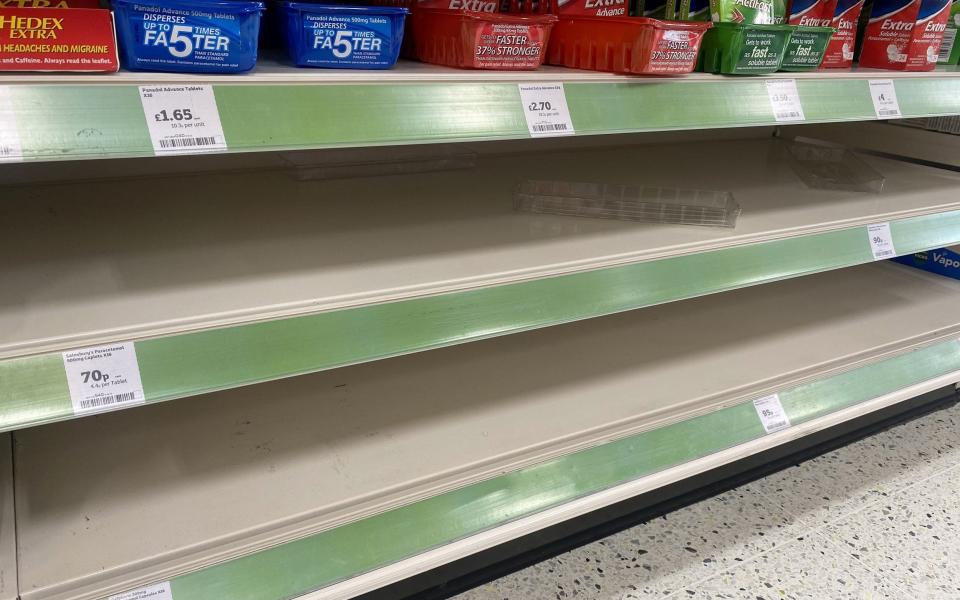Omicron sparks paracetamol and ibuprofen shortage

Omicron has sparked a shortage of paracetamol and ibuprofen as shoppers stock up on painkillers to fight the virus.
Paracetamol is the scarcest item on shop shelves with three in 10 stores having no or low stocks of the painkiller during the huge Covid wave, according to the Office for National Statistics.
A fifth of shops are suffering shortages of ibuprofen while there are also low supplies of toilet roll and fresh fish.
The data suggests shortages of the painkillers have worsened considerably since omicron sent cases rocketing, with 15pc of stores suffering a lack of paracetamol in early November.
Pharmaceutical supply experts said supply of the drugs has been unable to cope with rocketing demand as omicron rips through the country.
One in 15 in England, or 3.7m people, have Covid, the ONS estimates, while virus restrictions have caused chaos across supply chains.
Prof Richard Wilding, a supply chain expert at Cranfield University, said supermarkets are more likely to be affected by the painkiller supply crunch given their reliance on distributors.
“People are having boosters, which probably means there's going to be an increase in people taking this product, then you've got colds, flus and Covid,” he said.
“Supply needs to actually catch up with that and work with that... the new normal for supply chains unfortunately is an awful lot of volatility and challenges with that. Products like this are therefore more likely to be disrupted.”
Michelle Riddalls, head of consumer healthcare body Proprietary Association of Great Britain (PAGB), said: “Any gaps on over-the-counter medicine shelves are likely to be local, sporadic and filled within a relatively short time.”
She added: “Paracetamol and ibuprofen can both play an important part in managing mild to moderate symptoms of Covid-19 as well as any side-effects experienced after vaccination against Covid-19. That may mean there is currently higher-than-usual demand.”
Omicron threatens to make supply bottlenecks even worse as manufacturers face worker absences and countries turn to restrictions, particularly in China.
Britain relies heavily on overseas suppliers for generic drugs, such as painkillers. Around a third of generic medicines used by the NHS are made in India, which has limited drug exports at times during the pandemic amid soaring demand.

 Yahoo Finance
Yahoo Finance 